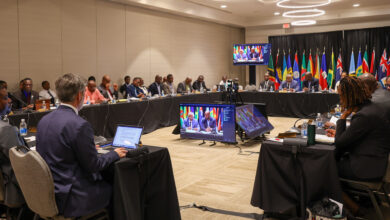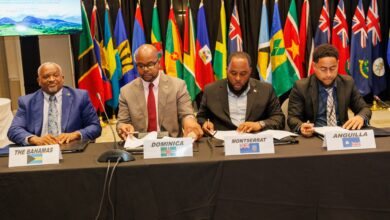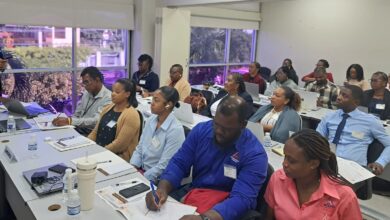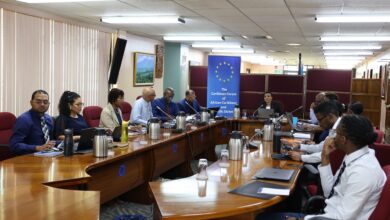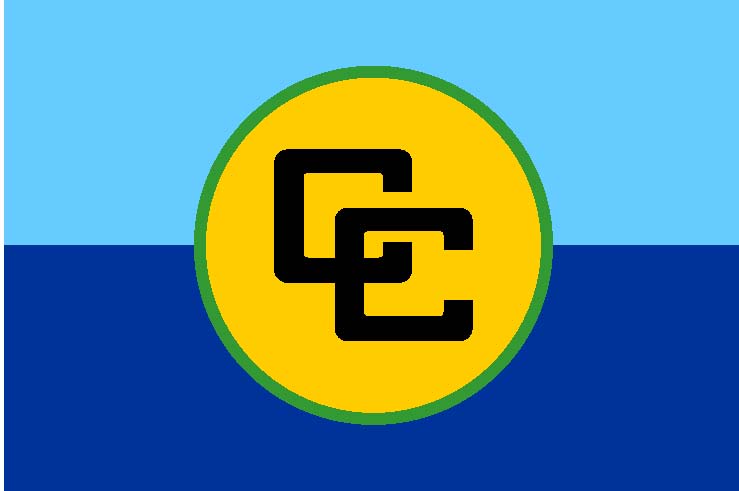Esteemed colleagues,
Representatives of the media:
On behalf of the Secretary-General and the staff of the CARICOM ecretariat, it is my pleasure to welcome you to this important Consultation. Given the early start of Community meetings this year, I am also glad of the opportunity to wish you, your families and organisations, a happy and successful New Year.
The CARICOM Region stands poised at the brink of the realisation of the Single Market and Economy towards the beneficial inclusion of the Region as a participant of the Global Information Society. Even as I speak, the world economy is in swift transition. It is moving from the industrial age to a “knowledge” or “information society”.
This information society is rapidly taking shape before our eyes. Think for a moment about all the changes that have occurred over the last couple of years: the explosion of mobile communications; the exponential growth of the Internet; the increasing contribution of digital industries to growth and employment; the restructuring of businesses in all sectors of the economy to make the most of the Internet; the rapid emergence of electronic commerce. These changes are underpinned by technological progress and globalisation; the combination of global competition and digital technologies is having a sweeping effect on the economy.
Digital technologies make it easier and increasingly cheaper to access information, store it and transmit it. Taking digital information and transforming it into economic and social value, offers huge opportunities for the development of new products and services. Information is the key resource of the digital economy.
I am conscious that there are apprehensions occasioned by these sweeping changes. These are natural; the fear experienced in the face of any new tool is a recurring fact of history. But the promises harboured by the information society justify pledging our wholehearted commitment and overcoming these fears.
As a region, we recognise that the creation of a Single market and Economy can be better achieved by ICT- enhanced competitiveness in services and seizing the opportunities offered by E-Commerce, especially for Small & Medium-size Enterprises (SMEs), including the micro-firms which represent a critical part of the traditional business structure of the Region.
Today we take yet another step towards including the Region as a full participant and player in the Global Information Society. However, even as we do so we are ever mindful that Technology is merely a resource – it must be placed at the service of society. Our regional and global preparations must all have at their core the enhancement of the quality of life of our citizens.
Ours today is an important and very urgent task – that of preparing for the World Summit on Information Society (WSIS). This meeting's objectives are:
Deciding on a strategic regional direction for activities leading up to Phase ll of the WSIS, which will take place in Tunis in November
Reviewing the draft CARICOM WSIS Action Plan ” Formation of a CARICOM/WSIS working group to spearhead the activities outlined in the WSIS plan of action
Setting up teams to advance work on the relevant themes and action lines in the draft WSIS plan of action; and
Exchanging views and experiences with regard to national and regional activities relating to the Information Society.
We have got together for this initial consultation a representative group of primary stakeholders. Given our ultimate goal of the transformation of the Caribbean into a truly Information Society, the range of stakeholders is vast; their numbers and categories limitless. Indeed, the term “stakeholder” encompasses the entire population of the Community and its vital external constituency, the Caribbean Diaspora. As the earliest to be identified as stakeholders, yours is the task also to bring on board others from your network of contacts and assist us in widening the participation.
Our goal is to:
adopt a culture which embraces information and communication technologies (ICTs) as a catalyst for development;
create awareness of the importance of ICTs in our daily lives; in national planning, services, human resource development and poverty alleviation;
identify what we would like these technologies to help us do;
make recommendations on what technologies are appropriate and which we need to embrace; and, ultimately,
create a Caribbean Information Society.
It is a formidable task but one that is achievable with the support, knowledge, experience and contribution of individuals, academic institutions, civil society, the public and private sectors of the Caribbean Community, and a wide range of regional and international organizations with similar vision and mandates. It is the symbiotic relationship between our regional bodies, such as the CARICOM Secretariat and the stakeholder communities, that will help us close the 'digital divide', not only between developed and developing countries, but also between the technological haves and the technological have-nots within our own countries. People are at the centre of our development and must not only be beneficiaries, but active participants in this development.
The Caribbean Community seeks a new departure in developing and executing a regional strategy for ICT and development. The Region is very much at the crossroads of the global information society and seeks to balance the opportunities and risks inherent in increased mobility of capital, goods, services and information. In this, our cultural diversity, climate, abundant natural resources, and young vibrant populations, not to mention our wealth of intellectual capital, are assets in the transformation of the Community into for a knowledge-based economy.
This regional preparatory meeting comes at a critical time, less than a year ahead of the Second Phase of the World Summit on Information Technology. We must ensure that the plans we develop are forward-looking and addresses tomorrow's problems, not those of yesterday. Ultimately, The information society will be what we in CARICOM and the rest of the world decide to make it. Let us continue the work without delay.
I extend to UNDP our thanks for making this meeting possible.

